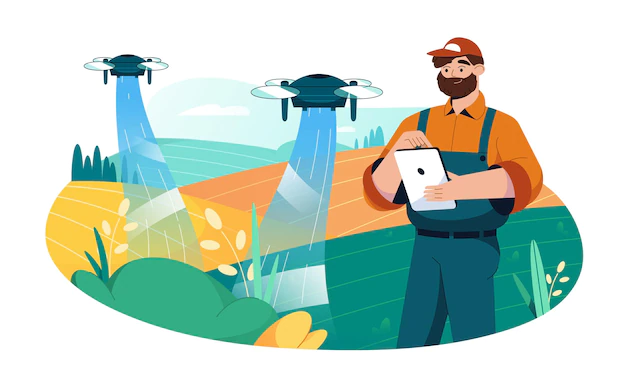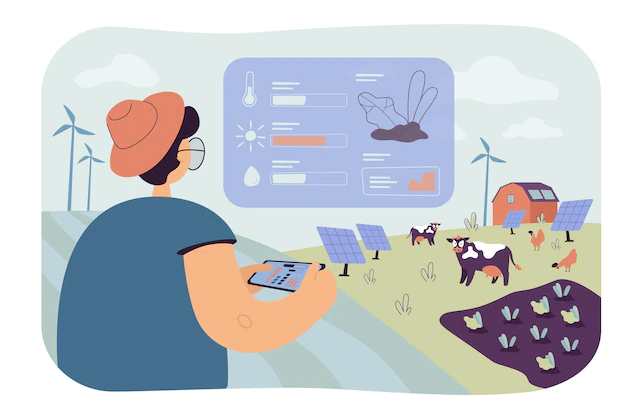Agriculture is one of the main sources of revenue and food supply around the world. With the advancements in technology, we can see improvements in agricultural production and crop productivity. In this article, we are to provide you with comprehensive information regarding the importance of agricultural technology and answer all your questions.

Venture capitalists invested more than 2 billion dollars in agriculture technology startups in 2014 and in 2015. The demand for innovative farm technology is high. Today, organic fertilizers are used, fewer chemical pesticides are consumed, and different tractors and machinery are used. Farmers no longer need to apply water, fertilizers, and pesticides across entire fields. They can use the minimum quantities required and target specific areas or treat individual plants. This can result in:
- Higher crop productivity
- Decreased use of water, fertilizer, and pesticides, which in turn keeps food prices down
- Reduced impact on natural ecosystems
- Less runoff of chemicals into rivers and groundwater
- Increased worker safety
Read more: Organic Production
Moreover, sophisticated technologies such as robots and different kinds of sensors make monitoring and management of natural resources more reliable and provide greater control over plants, production, distribution, and storage, which are beneficial in terms of:
- Greater efficiencies and lower prices
- Safer growing conditions and safer foods
- Reduced environmental and ecological impact

Use of technology in agriculture
Technological advancements have changed agriculture in recent years. Agritech is used for many different purposes. The most common applications of agritech go as follows:
Farm Machines as a Pervasive Automation
One of the most important factors that farmers are faced with is labor costs which continue to increase. Besides, yield and time are the other vital factors in agriculture. It is important to sow as early as possible and harvest at the appropriate time. The introduction of self-driving combine harvesters and planters ensures farmers grow large quantities of food in the shortest possible time. Also, GPS technology provides self-driving tractors and sprayers with tracking systems which results in avoiding serious human errors and saving fuel and equipment.
Crop Sensors
This technology provides farmers with the opportunity to gather data on the plants which can cause a reduction in the chance of leaching or runoff. In this case, variable rate technology is very beneficial. The crop sensor is designed to specify the amount of water, fertilizers, and pesticides for a specific crop and when to apply them by detecting moisture and nitrogen levels. About 70 percent of all freshwater worldwide is used for agriculture. However, about 60 percent of this water is wasted. These sensors help conserve water, limit erosion, and reduce fertilizer levels in local rivers and lakes, which makes farms environmentally friendly.

Global Positioning System (GPS)
GPS is becoming a common technology in agriculture. It provides real-time crop imagery which lets a farmer examine crops. Documentations of yields from a given farm can offer a summary of the entire year’s activities. It can save a farm a considerable amount of time and money. Farmers can rely on the collected and recorded data or yield map for reference when making any decisions. This technology can be integrated with the crop, soil, and water sensors.
Vertical Farming
It is the method of producing food and cultivating plants in vertically stacked layers. Its most obvious advantage is that it enables growth within urban environments. This technology offers further advantages like having fresher foods available faster and at lower costs and utilizing available land where crops wouldn’t normally grow.
Last Word
As a final note, agritech is the use of technology in farming developed to improve efficiency and productivity. Agriculture technology aims to provide farmers with new ways to make farming more efficient and grow more crops. In this article, we have tried to provide you with practical details regarding agritech and its applications.

